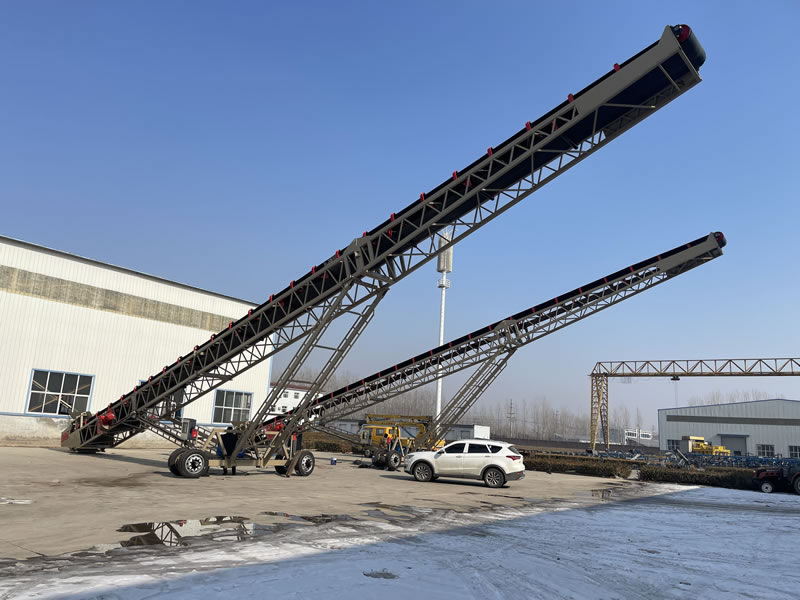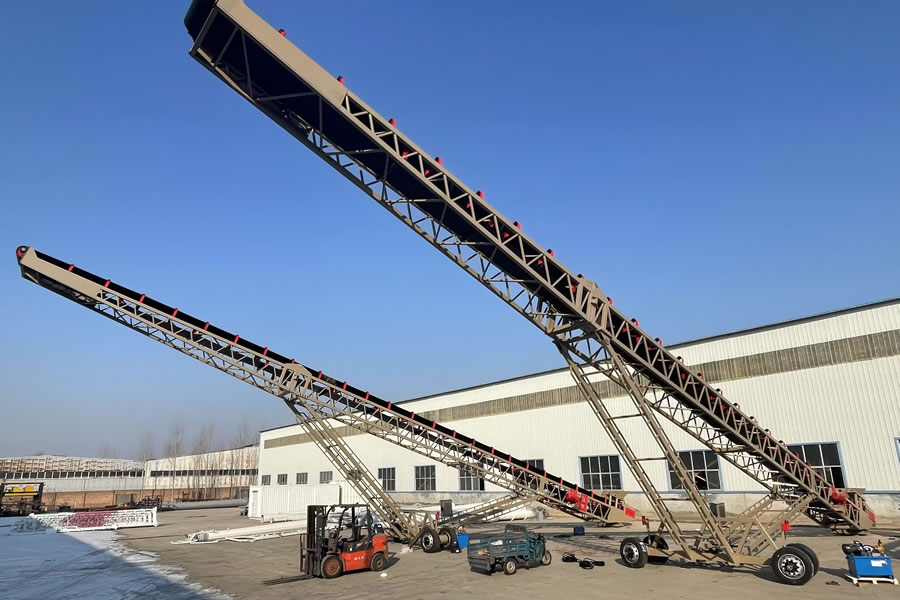
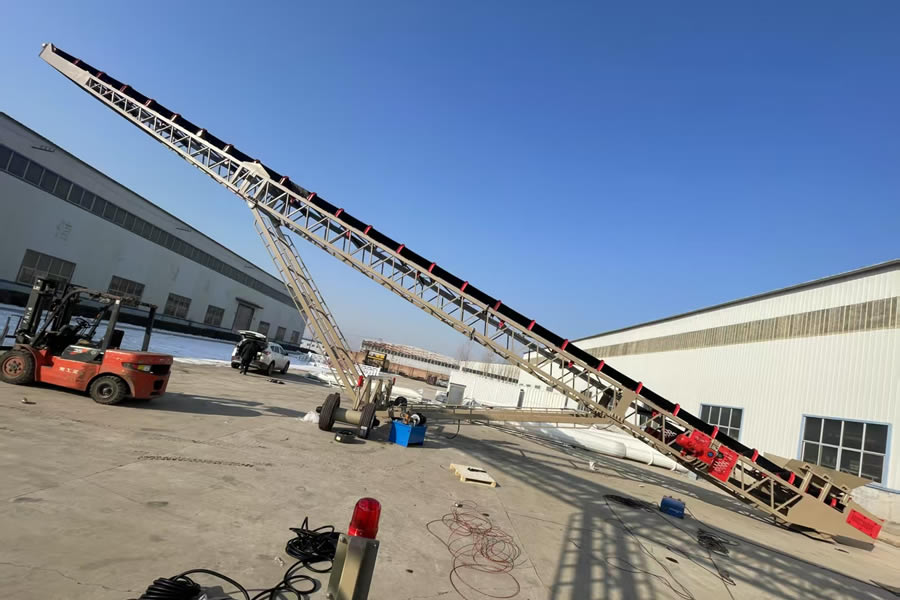
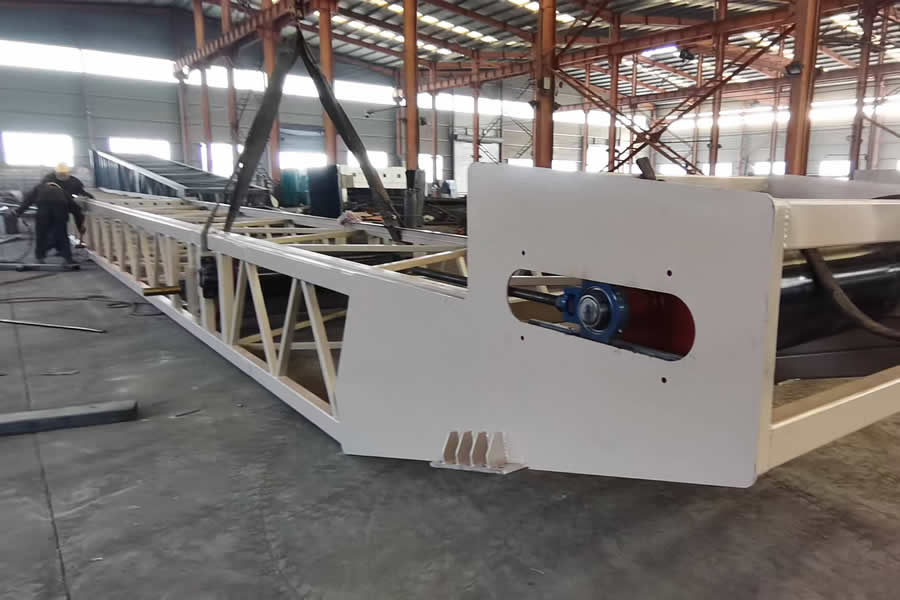
Application
Logistics & Warehousing
- Goods Sorting and Storage: In large-scale logistics and warehousing operations, where a high volume and variety of goods are handled, the radial rotary conveyor can transfer items from unloading points to designated storage areas, enabling efficient sorting and storage. For example, in e-commerce warehouses, the conveyor system can accurately distribute products for different orders to their corresponding storage shelves.
- Distribution Process: During order fulfillment, the radial rotary conveyor can move goods from storage zones to packaging areas or shipping points, significantly improving distribution efficiency.
Ports & Terminals
- Cargo Handling: At ports and docks, radial rotary conveyors are used to unload cargo from ships to the dock or load cargo from the dock onto ships. The rotation function allows flexible adjustment of the conveying direction to accommodate various docking positions and loading/unloading requirements. For example, at bulk cargo terminals, they can efficiently transfer coal, ores, and other materials from ship holds to onshore storage.
- Container Handling: At container terminals, the radial rotary conveyor can work in tandem with container cranes for container loading and unloading. This enhances terminal operations and reduces vessel berthing time.
Mining & Metallurgy
- Ore Conveying: In mining operations, radial rotary conveyors transport extracted ores from underground or open-pit mines to processing or beneficiation plants. Their large capacity and flexible direction control meet the needs of continuous production. For example, in metal mines, the conveyor can transport iron ore to the crushing workshop for initial processing.
- Slag Handling: In metallurgical production, large volumes of slag are generated. Radial rotary conveyors can transport slag from the production area to designated storage or processing sites for effective waste management.
Food & Beverage Industry
- Product Packaging: On food and beverage production lines, radial rotary conveyors can transfer products from production stages to packaging units. Their controlled conveying process ensures products remain undamaged. For instance, in a beverage plant, they move filled bottles to labeling and packaging machines for further processing.
- Raw Material Transport: During food and beverage processing, raw materials need to be delivered to equipment efficiently. The conveyor transfers materials like flour, sugar, and yeast from storage to processing units—such as mixers in a bakery—enabling fully automated material feeding.
Machinery Manufacturing
- Parts Distribution: In manufacturing plants, radial rotary conveyors can deliver components from warehouses to various workstations on the production line. Their flexible routing adjusts according to production needs. For example, in automobile factories, the conveyor transports engines, transmissions, and other parts to the assembly line.
- Finished Product Transfer: These conveyors also carry finished goods from production lines to storage or dispatch areas. Their high capacity and smooth operation improve handling efficiency and reduce inventory pressure.
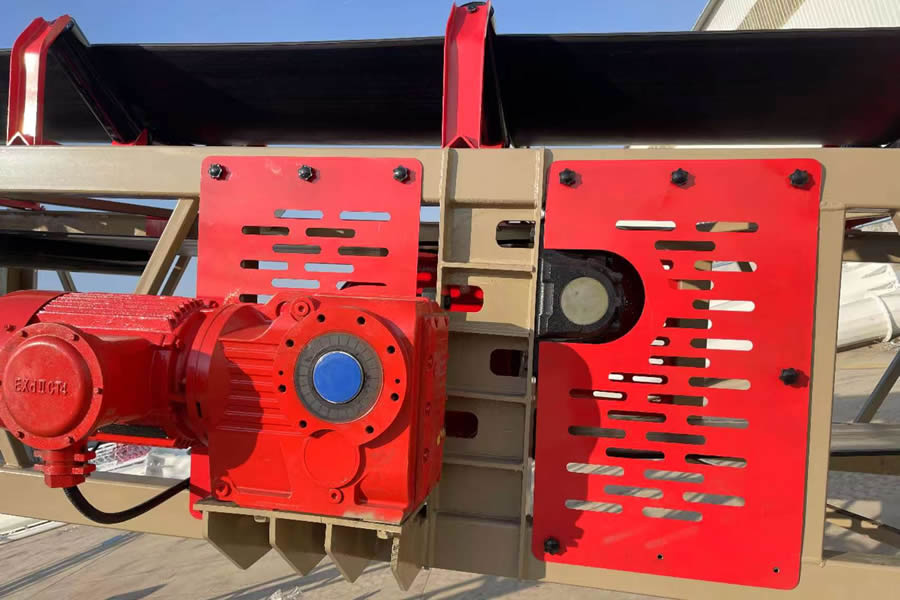
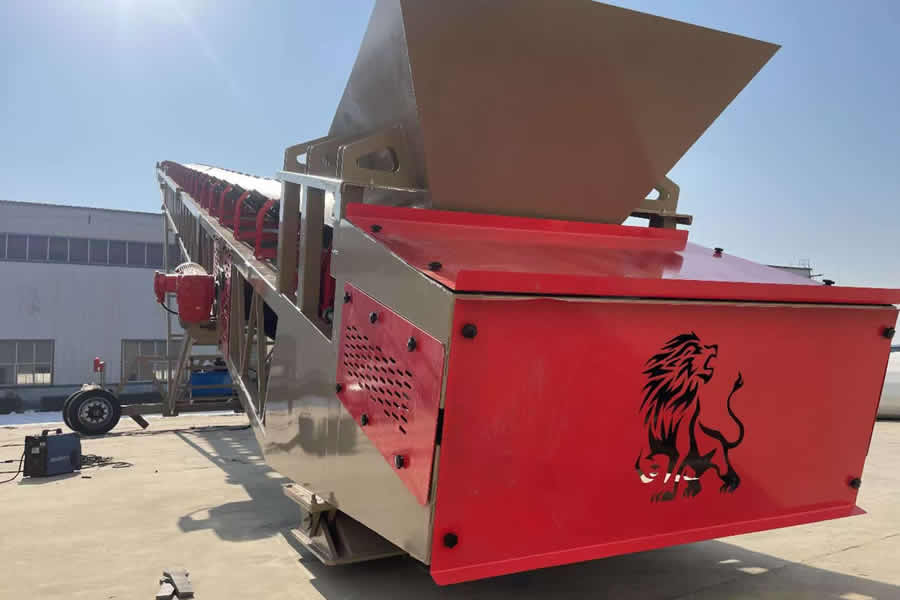
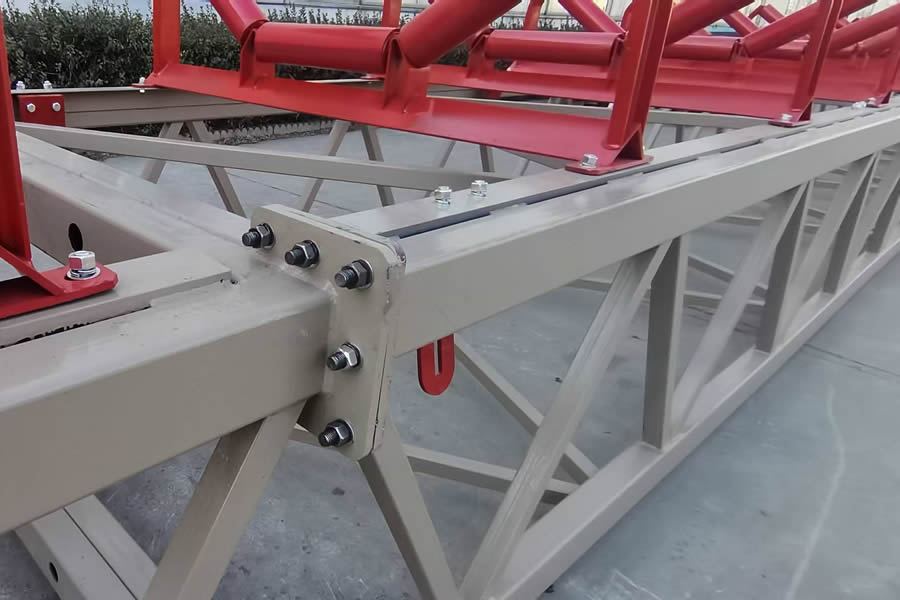
Advantages
Flexible Conveying Angles
Supports 360° omnidirectional rotation, allowing flexible adjustment of material flow within limited spaces. Unlike traditional linear conveyors, no complex transfer mechanisms are required to send materials to multiple locations—greatly improving operational flexibility and efficiency.
High Space Utilization
Compact structure with a small footprint, ideal for space-constrained work environments. The radial rotation system enables wide-area conveying in minimal space, reducing the need for expansive facilities and lowering factory construction or warehouse rental costs.
High Conveying Efficiency
Capable of transporting materials quickly from one point to another, minimizing wait times. Seamlessly integrates with other machinery or conveying systems to ensure continuous material flow and optimized production processes.
Strong Adaptability
Handles a wide range of materials—including powders, granules, lumps, and items of various sizes and weights. By selecting suitable belt materials, conveying speeds, and rotation radii, the system meets different operational needs. Also performs reliably in harsh environments such as high temperature, humidity, and dust.
Stable Operation
Equipped with advanced drive systems and mechanical structures for smooth and quiet operation with low failure rates. Rotating components are precisely engineered for long-term stability. Includes protection features such as overload protection and anti-deviation devices.
Low Maintenance Costs
Simple structure with easily removable and replaceable parts makes maintenance convenient. Reliable performance reduces downtime and repair costs. Wear components like conveyor belts are easy to replace, reducing maintenance workload and expense.
High Automation Capability
Integrates with automated control systems for remote operation and intelligent control. Automatically adjusts conveying speed and rotation angle based on material flow and positioning data. Enhances overall automation, reduces manual intervention, and lowers labor intensity.
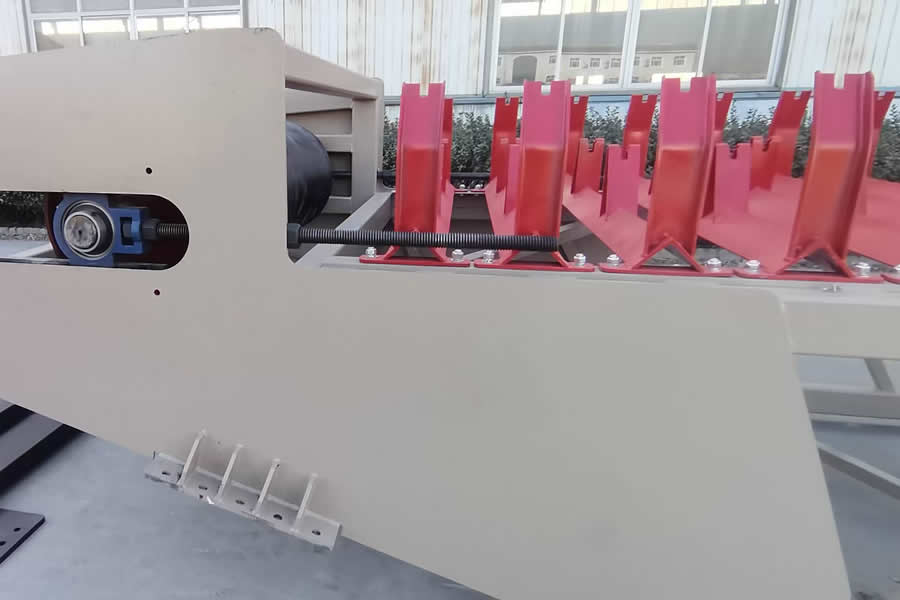
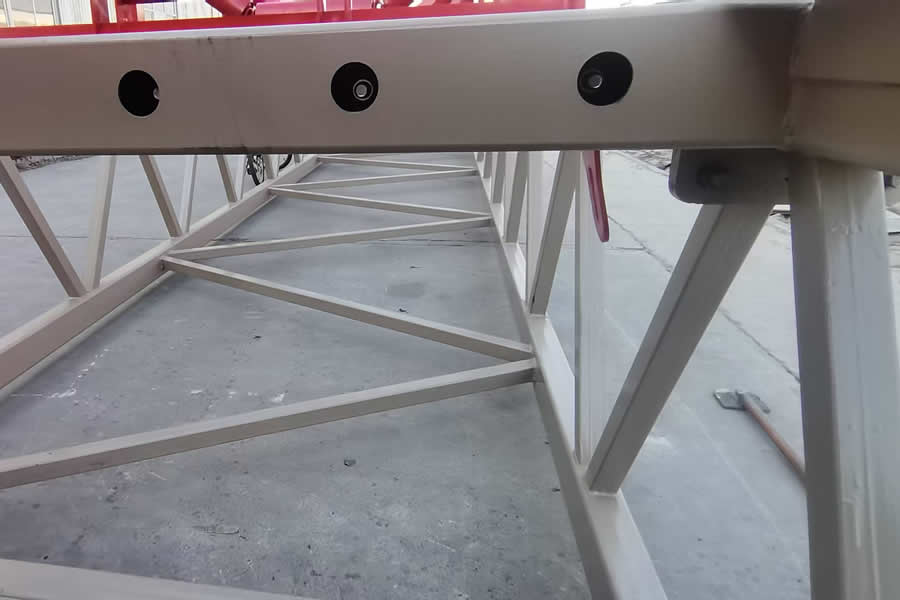
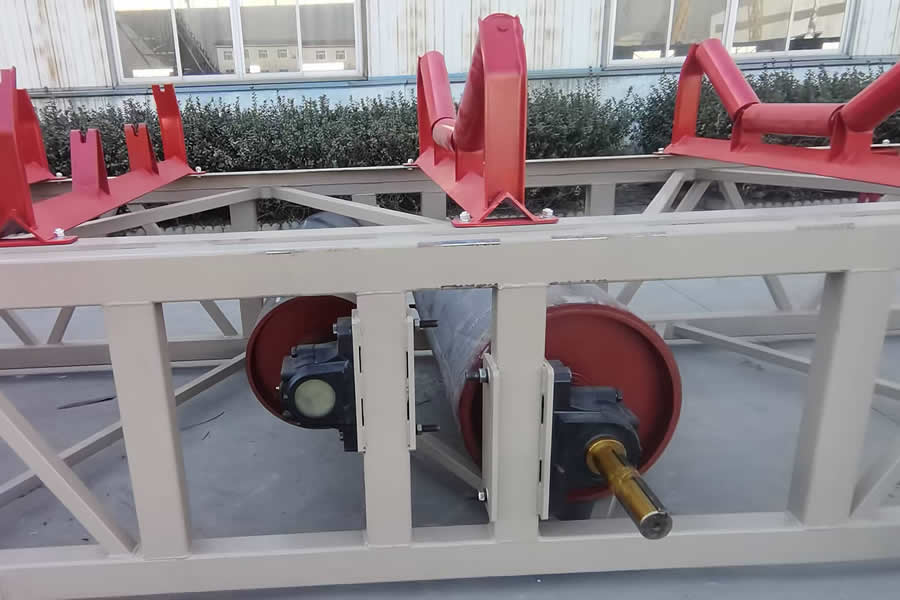
Technical Specifications
| Radial Rotary Belt Conveyor | ||
| Conveying Capacity | 10-3000t/h | Customizable |
| Conveying Speed | 0.8-2.5m/s | |
| Stacking Height | <30m | |
| Belt Width | 300-1400mm | |
| Conveying Distance | 10-80m | |
| Motor Power | 55-220kw | |
| Power Supply Voltage | 220V、380V、450V、660V、690V AC | |
| Operating Temperature | – 25℃~40℃ | |
| Inclination Range | 30-90° | |

